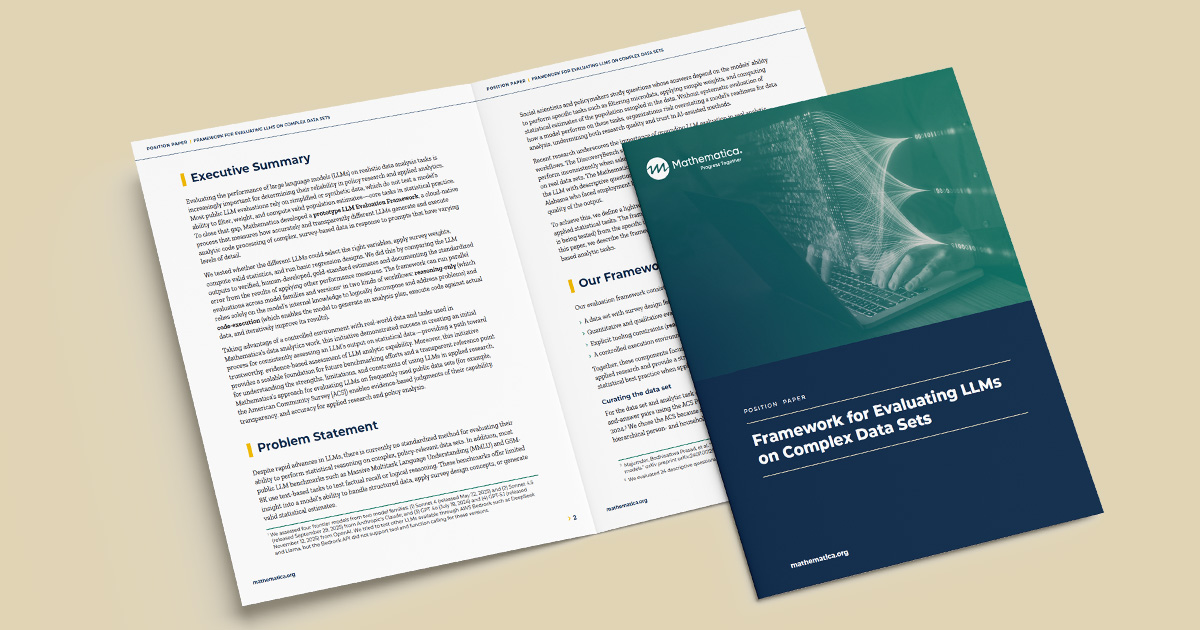A Head-to-Head Comparison of Alternative Voting Rules
Download
Key Findings
- There was a stark, consistent performance gap between Condorcet- and non-Condorcet voting rules, but minimal differences within the class of Condorcet voting rules.
- The most widely debated rules in electoral reform discourse (Plurality and Instant run-off voting) performed worst, ranking at the bottom on all metrics analyzed.
- The Copeland voting rule was the only rule robust to spoiler effects (violations of the Local Independence of Irrelevant Alternatives principle).
- If voting rules elect a winner who trails in first-place votes early on, legitimacy challenges can arise.
The plurality voting rule used in most U.S. elections has been the subject of debate, with some noting that it may misrepresent voters' preferences and allow for candidates who lack broad support to be elected. To better understand how alternative voting rules may perform in real-world elections, Mathematica built a rigorous agent-based model that is grounded in real-world survey data from the American National Election Studies. We simulated more than half a million Senate elections to quantify and compare the performance of eight voting rules on the extent to which they resisted spoiler effects and elected winners who were centrist, representative, and majority preferred.
We assessed the rules' performance under several scenarios that captured the influences of political tribalism, ballot truncation, polarization, primary election type, and the number of candidates competing. We found a stark, consistent performance gap between Condorcet- and non-Condorcet voting rules but minimal differences within the class of Condorcet voting rules. The most widely debated voting rules in electoral reform discourse-plurality and instant run-off voting-showed lower performance on all measures analyzed. We also noted that Copeland was the only voting rule not vulnerable to spoiler effects.
The results suggest that alternatives to the status quo (plurality) that go beyond familiar options like instant run-off voting may warrant consideration. Extensions to further the realism of our model include incorporating ballot errors, candidate and voter strategy, and systems of influence (such as political governing bodies and endorsements), which can affect candidates' viability and familiarity to voters.
Efficiency Meets Impact.
That's Progress Together.
To solve their most pressing challenges, organizations turn to Mathematica for deeply integrated expertise. We bring together subject matter and policy experts, data scientists, methodologists, and technologists who work across topics and sectors to help our partners design, improve, and scale evidence-based solutions.
Work With Us
